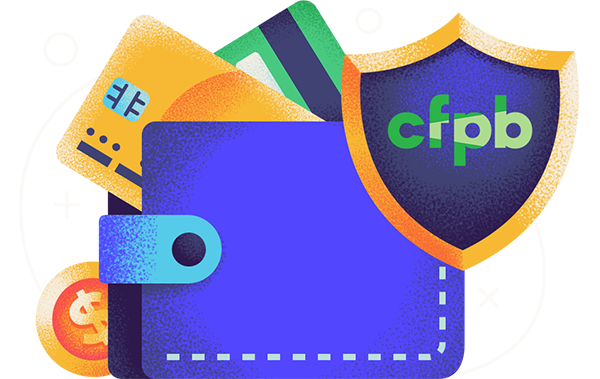The Consumer Financial Protection Bureau is now operational, and complaints are flowing in…what does the CFPB mean to you? How can it help?
There’s a new regulatory sheriff in Washington, D.C. Its job: protect consumers from unfair financial services practices like the ones blamed for the recent mortgage crisis and yes, those baffling credit card statements the government has been cracking down on.
The Consumer Financial Protection Bureau emerged from the political wreckage of the Dodd-Frank Wall Street Reform and Consumer Protection Act. Dodd-Frank, passed in 2010, dramatically increased federal oversight of the financial industry, but not without a withering political fight.
It’s been so controversial that President Obama ended up filling the bureau’s top job in a recess appointment just to get things started after Congress stonewalled his earlier nominee. Now the CFPB is rolling, announcing a new program seemingly daily and sending a clear signal to the banks that they are on notice.
Despite its polarized origins – and perhaps because of them – the CFPB has launched with an ambitious agenda, launching an attempt to regulate the prepaid card industry, taking a hard look at bank overdraft fees and earning the ire of the financial industry with its first shot across the bow: now consumers can use a new CFPB database to see how many complaints credit card issuers have received before selecting a new card.
The complaints are even ranked, much to the annoyance of the credit card industry, which has been seething about the release of the data. There is only a month’s worth of data up now, but the agency said that it plans to expand the database, available at www.consumerfinance.gov, to include the 16,800 complaints it’s collected since opening its doors and will soon add complaints about mortgages and other financial services.
A USA Today report found that more than a third of credit card customers who complained got some form of monetary settlement from their issuer – an average of $127 off their bill.
The leading problems? Billing disputes, identity theft and fraud. Capital One leads the complaints derby with about 20 percent of all complaints filed, followed closely by Citigroup. U.S. Bank had the lowest number of complaints among the top 10 issuers.
Think of the CFPB as a one-stop shop for consumer financial protection. The law creating it brought together under one roof a whole host of the various rules, regulations and officials once spread all over the federal bureaucracy and charged it with educating consumers about financial matters and extending federal oversight to non-bank entities that provide financial products or services to consumers.
So the big difference is the agency’s range: the CFPB has been charged with creating rules and regulations to oversee all businesses that provide financial products and services to consumers, including credit cards, student loans, mortgages, check cashing services, pay-day loans, online banking and credit reports – if it involves banking or payments, it’s within the CFPB’s scope.
That means if you have a problem regarding debt collection, credit reporting agencies and even money transfers, the CFPB is now the go-to agency in Washington. It’s a huge responsibility, and the bureau is busily constructing a number of online complaint channels at https://www.consumerfinance.gov/.
Look for the CFPB to put prepaid cards in its crosshairs next. The agency has said it is taking a long, hard look at the disclosure standards in the booming prepaid card sector. Of course the agency could also examine the fees associated with prepaid cards, which can run as high as $19.61 monthly on a $100 child’s allowance loaded on a card issued by NetSpend, according to a WalletHub.com analysis.
It’s not out of the woods yet – the CFPB has been challenged in court by a small Texas bank and a couple of advocacy groups, who are challenging the constitutionality of the agency – but it’s clearly shaking things up as it evolves into a full-fledged regulatory body.


WalletHub experts are widely quoted. Contact our media team to schedule an interview.